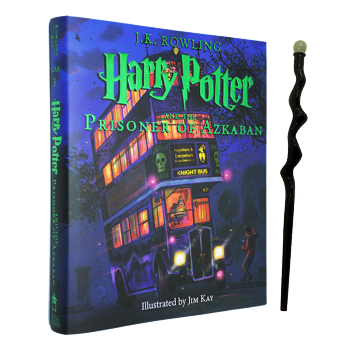![Into the Wild 荒野生存 英文原版 [平装]](https://pic.tinynews.org/19276496/55cda9a3N3bf82b40.jpg)

具体描述
编辑推荐
人心中都有一个克里斯拿到《荒野生存》,最让我不解的是,一名年轻流浪者的经历,如何能让不少记者尾随其踪迹花一两年解开其谜团,让肖恩?潘执著十年等待克里斯父母的允许开拍电影?更重要的是,《荒野生存》雄踞《纽约时报》畅销书排行榜两年以上,牵动了几百万美国人的心。说到底,克里斯不过是一名不幸的流浪者。
“一千个人眼中有一千个哈姆雷特”,那是因为读者们都加入了自己对生活的理解。克里斯奇迹般地得到那么多人的关爱、牵挂、赞扬和苛责,是不是也可以说因为他们心中都有一个克里斯?可能有读者要反驳,谁要去那种没水没电的地方风餐露宿,那是蚊子、野兽和疯子的乐园。
然而,谁敢说自己不曾年轻过,不曾有过敏感、叛逆和渴望流浪的心?美国有“嬉皮士”、“垮掉的一代”;中国有无数为崔健的音乐疯狂,曾经梦想抱着木吉他去流浪的年轻人。只不过,我们绝大多数人在成长中学会谨慎理智,甚至反过来责难那些不切实际的游民,正由于此,人类社会生生不息地繁衍、发展。但是,一小撮被视为另类的边缘人,形体上的或精神上的游民,他们放不下自己唯美的固执,在霓虹灯的阴影,在心灵的边缘,坚持着那个浪漫得一塌糊涂,却高贵动人的梦想。
拥挤的人群不一定代表丰盈满足,人们在写字楼里,在宴席中,在24小时灯火通明的大都市,不是也常常会感到空虚迷茫?只不过,人们以为是自己拥有得不够,因为贫乏而失落,于是更急切地去寻找更多的填充物,而不是一无所有的荒凉之地。
有人说,我们是不举的衰神,绝大多数人没有和这个社会较过一次真,只是选择默默地接受由别人创造的社会、思想、规则甚至邻居的看法。我们自己掂量了一下自己,决定还是把头默默地低下去继续,其间用很多精神食粮和爱情信仰调调味,让它容易下咽一些。
成为传奇的人物却不接受这样的活法,他们说,即使活不下去,也要活出我自己。
也许,这么多人言辞激烈地苛责克里斯,是因为克里斯让他们想到从前的自己。曾经年轻、敏感、叛逆、偏激的自己。莫名心惊。莫名失落。
所有曾经发现内在声音的人,都应该看看《荒野生存》。
内容简介
In April 1992 a young man from a well-to-do family hitchhiked to Alaska and walked alone into the wilderness north of Mt. McKinley. His name was Christopher Johnson McCandless. He had given $25,000 in savings to charity, abandoned his car and most of his possessions, burned all the cash in his wallet, and invented a new life for himself. Four months later, his decomposed body was found by a moose hunter. How McCandless came to die is the unforgettable story of Into the Wild.Immediately after graduating from college in 1991, McCandless had roamed through the West and Southwest on a vision quest like those made by his heroes Jack London and John Muir. In the Mojave Desert he abandoned his car, stripped it of its license plates, and burned all of his cash. He would give himself a new name, Alexander Supertramp, and , unencumbered by money and belongings, he would be free to wallow in the raw, unfiltered experiences that nature presented. Craving a blank spot on the map, McCandless simply threw the maps away. Leaving behind his desperate parents and sister, he vanished into the wild.
Jon Krakauer constructs a clarifying prism through which he reassembles the disquieting facts of McCandless's short life. Admitting an interst that borders on obsession, he searches for the clues to the dries and desires that propelled McCandless. Digging deeply, he takes an inherently compelling mystery and unravels the larger riddles it holds: the profound pull of the American wilderness on our imagination; the allure of high-risk activities to young men of a certain cast of mind; the complex, charged bond between fathers and sons.
When McCandless's innocent mistakes turn out to be irreversible and fatal, he becomes the stuff of tabloid headlines and is dismissed for his naiveté, pretensions, and hubris. He is said to have had a death wish but wanting to die is a very different thing from being compelled to look over the edge. Krakauer brings McCandless's uncompromising pilgrimage out of the shadows, and the peril, adversity , and renunciation sought by this enigmatic young man are illuminated with a rare understanding--and not an ounce of sentimentality. Mesmerizing, heartbreaking, Into the Wild is a tour de force. The power and luminosity of Jon Krakauer's stoytelling blaze through every page.
《荒野生存》同名电影由肖恩·潘执著10年倾情编导。纽约时报评论“令人震慑,让人感动,一个探索人类心灵深处某种追寻的动人故事。”
我们究竟是谁?我们究竟何在?什么是生命中必要的事情?生活从来都不诗情画意。因此,无论如何,记得给自己留条回来的路。
扣动美国人心弦的阿拉斯加之谜:
为什么富家子弟、名牌大学毕业生放弃一切走进阿拉斯加荒野?
为了逃离沉重的家庭桎梏?躲避复杂的人际关系?
渴望惊心动魄的冒险?还是执着探寻灵魂之乡?
为什么他在萍水相逢的过客心中都留下了刻骨铭心的印记?
为何一个无名的旅行者竟引起美国媒体的争相报道?
为何一个年轻流浪者在美国主流社会刮起一阵阅读、讨论旋风?
记者乔恩·克拉考尔沿着他的足迹奔走于美国西部,走访与他的旅途曾有交集的人,阅读他留下的谜样日记、照片、书籍和信件,并毫无保留地讲述自己年轻时的“魔指”峰冒险,以及使他醉心户外探险的家庭、心理因素,试图解开这个“阿拉斯加之谜”。
作者简介
Jon Krakauer is the author of Under the Banner of Heaven, Eiger Dreams, Into the Wild, and Into Thin Air and is editor of the Modern Library Exploration series.精彩书评
"Terrifying...Eloquent...A heart-rending drama of human yearning."--New York Times
"A narrative of arresting force. Anyone who ever fancied wandering off to face nature on its own harsh terms should give a look. It's gripping stuff."
--Washington Post
"Compelling and tragic...Hard to put down."
--San Francisco Chronicle
"Engrossing...with a telling eye for detail, Krakauer has captured the sad saga of a stubborn, idealistic young man."
--Los Angeles Times Book Review
"It may be nonfiction, but Into the Wild is a mystery of the highest order."
--Entertainment Weekly
前言/序言
THE ALASKA INTERIORApril 27th, 1992
Greetings from Fairbanks! This is the last you shall hear from me, Wayne. Arrived here 2 days ago. It was very difficult to catch rides in the Yukon Territory. But I finally got here.
Please return all mail I receive to the sender. It might be a very long time before I return South. If this adventure proves fatal and you don't ever hear from me again I want you to know you're a great man. I now walk into the wild. --Alex.
(Postcard received by Wayne Westerberg in Carthage, South Dakota.)
Jim Gallien had driven four miles out of Fairbanks when he spotted the hitchhiker standing in the snow beside the road, thumb raised high, shivering in the gray Alaska dawn. He didn't appear to be very old: eighteen, maybe nineteen at most. A rifle protruded from the young man's backpack, but he looked friendly enough; a hitchhiker with a Remington semiautomatic isn't the sort of thing that gives motorists pause in the forty-ninth state. Gallien steered his truck onto the shoulder and told the kid to climb in.
The hitchhiker swung his pack into the bed of the Ford and introduced himself as Alex. "Alex?" Gallien responded, fishing for a last name.
"Just Alex," the young man replied, pointedly rejecting the bait. Five feet seven or eight with a wiry build, he claimed to be twenty-four years old and said he was from South Dakota. He explained that he wanted a ride as far as the edge of Denali National Park, where he intended to walk deep into the bush and "live off the land for a few months."
Gallien, a union electrician, was on his way to Anchorage, 240 miles beyond Denali on the George Parks Highway; he told Alex he'd drop him off wherever he wanted. Alex's backpack looked as though it weighed only twenty-five or thirty pounds, which struck Gallien--an accomplished hunter and woodsman--as an improbably light load for a stay of several months in the backcountry, especially so early in the spring. "He wasn't carrying anywhere near as much food and gear as you'd expect a guy to be carrying for that kind of trip," Gallien recalls.
The sun came up. As they rolled down from the forested ridges above the Tanana River, Alex gazed across the expanse of windswept muskeg stretching to the south. Gallien wondered whether he'd picked up one of those crackpots from the lower forty-eight who come north to live out ill-considered Jack London fantasies. Alaska has long been a magnet for dreamers and misfits, people who think the unsullied enormity of the Last Frontier will patch all the holes in their lives. The bush is an unforgiving place, however, that cares nothing for hope or longing.
"People from Outside," reports Gallien in a slow, sonorous drawl, "they'll pick up a copy of Alaska magazine, thumb through it, get to thinkin' 'Hey, I'm goin' to get on up there, live off the land, go claim me a piece of the good life.' But when they get here and actually head out into the bush--well, it isn't like the magazines make it out to be. The rivers are big and fast. The mosquitoes eat you alive. Most places, there aren't a lot of animals to hunt. Livin' in the bush isn't no picnic."
It was a two-hour drive from Fairbanks to the edge of Denali Park. The more they talked, the less Alex struck Gallien as a nutcase. He was congenial and seemed well educated. He peppered Gallien with thoughtful questions about the kind of small game that live in the country, the kinds of berries he could eat--"that kind of thing."
Still, Gallien was concerned. Alex admitted that the only food in his pack was a ten-pound bag of rice. His gear seemed exceedingly minimal for the harsh conditions of the interior, which in April still lay buried under the winter snowpack. Alex's cheap leather hiking boots were neither waterproof nor well insulated. His rifle was only .22 caliber, a bore too small to rely on if he expected to kill large animals like moose and caribou, which he would have to eat if he hoped to remain very long in the country. He had no ax, no bug dope, no snowshoes, no compass. The only navigational aid in his possession was a tattered state road map he'd scrounged at a gas station.
A hundred miles out of Fairbanks the highway begins to climb into the foothills of the Alaska Range. As the truck lurched over a bridge across the Nenana River, Alex looked down at the swift current and remarked that he was afraid of the water. "A year ago down in Mexico," he told Gallien, "I was out on the ocean in a canoe, and I almost drowned when a storm came up."
A little later Alex pulled out his crude map and pointed to a dashed red line that intersected the road near the coal-mining town of Healy. It represented a route called the Stampede Trail. Seldom traveled, it isn't even marked on most road maps of Alaska. On Alex's map, nevertheless, the broken line meandered west from the Parks Highway for forty miles or so before petering out in the middle of trackless wilderness north of Mt. McKinley. This, Alex announced to Gallien, was where he intended to go.
Gallien thought the hitchhiker's scheme was foolhardy and tried repeatedly to dissuade him: "I said the hunting wasn't easy where he was going, that he could go for days without killing any game. When that didn't work, I tried to scare him with bear stories. I told him that a twenty-two probably wouldn't do anything to a grizzly except make him mad. Alex didn't seem too worried. 'I'll climb a tree' is all he said. So I explained that trees don't grow real big in that part of the state, that a bear could knock down one of them skinny little black spruce without even trying. But he wouldn't give an inch. He had an answer for everything I threw at him."
Gallien offered to drive Alex all the way to Anchorage, buy him some decent gear, and then drive him back to wherever he wanted to go.
"No, thanks anyway,"Alex replied, "I'll be fine with what I've got."
Gallien asked whether he had a hunting license.
"Hell, no," Alex scoffed. "How I feed myself is none of the government's business. Fuck their stupid rules."
When Gallien asked whether his parents or a friend knew what he was up to--whether there was anyone who would sound the alarm if he got into trouble and was overdue Alex answered calmly that no, nobody knew of his plans, that in fact he hadn't spoken to his family in nearly two years. "I'm absolutely positive," he assured Gallien, "I won't run into anything I can't deal with on my own."
"There was just no talking the guy out of it," Gallien remembers. "He was determined. Real gung ho. The word that comes to mind is excited. He couldn't wait to head out there and get started."
Three hours out of Fairbanks, Gallien turned off the highway and steered his beat-up 4 x 4 down a snow-packed side road. For the first few miles the Stampede Trail was well graded and led past cabins scattered among weedy stands of spruce and aspen. Beyond the last of the log shacks, however, the road rapidly deteriorated. Washed out and overgrown with alders, it turned into a rough, unmaintained track.
In summer the road here would have been sketchy but passable; now it was made unnavigable by a foot and a half of mushy spring snow. Ten miles from the highway, worried that he'd get stuck if he drove farther, Gallien stopped his rig on the crest of a low rise. The icy summits of the highest mountain range in North America gleamed on the southwestern horizon.
Alex insisted on giving Gallien his watch, his comb, and what he said was all his money: eighty-five cents in loose change. "I don't want your money," Gallien protested, "and I already have a watch."
"If you don't take it, I'm going to throw it away," Alex cheerfully retorted. "I don't want to know what time it is. I don't want to know what day it is or where I am. None of that matters."
Before Alex left the pickup, Gallien reached behind the seat, pulled out an old pair of rubber work boots, and persuaded the boy to take them. "They were too big for him," Gallien recalls. "But I said, 'Wear two pair of socks, and your feet ought to stay halfway warm and dry.'"
"How much do I owe you?"
"Don't worry about it," Gallien answered. Then he gave the kid a slip of paper with his phone number on it, which Alex carefully tucked into a nylon wallet.
"If you make it out alive, give me a call, and I'll tell you how to get the boots back to me."
Gallien's wife had packed him two grilled-cheese-and-tuna sandwiches and a bag of corn chips for lunch; he persuaded the young hitchhiker to accept the food as well. Alex pulled a camera from his backpack and asked Gallien to snap a picture of him shouldering his rifle at the trailhead. Then, smiling broadly, he disappeared down the snow-covered track. The date was Tuesday, April 28, 1992.
Gallien turned the truck around, made his way back to the Parks Highway, and continued toward Anchorage. A few miles down the road he came to the small community of Healy, where the Alaska State Troopers maintain a post. Gallien briefly considered stopping and telling the authorities about Alex, then thought better of it. "I figured he'd be OK," he explains. "I thought he'd probably get hungry pretty quick and just walk out to the highway. That's what any normal person would do."
用户评价
这本《Into the Wild 荒野生存》的英文原版,光是书名就足以勾起我无限的遐想。我一直以来都对那些关于挣脱束缚、追求真实自我的人们的故事抱有浓厚的兴趣。我设想这本书将会带领我进入一片广阔而神秘的荒野,去体验那种与世隔绝的宁静与挑战。我非常期待能够从主人公的经历中,体会到他在物质世界之外所追寻的真正价值。我好奇作者是如何描绘荒野的壮美与危险,以及主人公是如何在这种极端环境下生存下来的。我更关注的是,他在这样的旅程中,是否找到了内心深处的答案,是否完成了对自我的超越。阅读英文原版,对我来说是一种更纯粹的体验,我希望能直接感受到作者最本真的文字所传递的力量和情感。这本书的到来,让我仿佛开启了一段通往未知世界的奇妙旅程。
评分这是一本我一直想读的书,终于入手了,而且是英文原版,感觉特别棒。封面设计简洁大气,拿在手里很有质感。书页的纸张质量也很好,触感舒适,印刷清晰,字体大小适中,阅读起来不会感到疲劳。我个人比较喜欢纸质书带来的那种沉浸式阅读体验,能够感受到油墨的香气,翻页时的沙沙声,这些都是电子书无法比拟的。这本书的装订也很牢固,即使经常翻阅也不担心散架。作为一名热爱户外和冒险的读者,我对于《Into the Wild 荒野生存》这个书名就充满了好奇和期待。我常常想象着书中描绘的那些原始而壮丽的自然风光,以及主人公在荒野中探索、挑战自我的过程。我希望这本书能够带给我一种身临其境的感觉,让我仿佛也置身于那片广阔的荒野之中,去感受那种自由、纯粹和原始的力量。而且,英文原版更能让我体会到作者最原始的文字表达,减少了翻译过程中可能出现的理解偏差。我非常期待这本书能带给我一次深刻的精神洗礼。
评分收到这本《Into the Wild 荒野生存》的英文原版,我迫不及待地想要开始阅读。我一直以来都对那些关于自我发现和精神探索的故事非常感兴趣,这本书的书名就充满了这种意味。我期望在阅读过程中,能够感受到主人公在荒野中经历的种种挑战,以及他因此而产生的内心变化。我希望这本书不仅仅是一个简单的冒险故事,更能够引发我对生命意义、个人选择以及社会价值的深刻反思。我喜欢那些能够触动人心、留下长久回味的文字,而我相信英文原版更能完整地呈现作者的情感和思想。我期待这本书能够打开我新的视野,让我对生活有更深的理解,也许还能从中汲取力量,去面对自己生活中的种种挑战。这本书在我看来,不仅仅是一本消遣读物,更是一次精神上的远足。
评分我一直对那些关于探索未知、挑战极限的故事情有独钟,所以当我在书店看到这本《Into the Wild 荒野生存》的英文原版时,我的目光立刻就被它吸引住了。我喜欢那些能够激发我内心深处冒险精神的书籍,那些让我暂时忘却现实烦恼,沉浸在另一个世界里的故事。我设想这本书中一定充满了壮丽的自然景观的描写,细腻的人物情感刻画,以及主人公在面对困境时所展现出的坚韧不拔的精神。我尤其好奇,在远离文明的荒野中,一个人是如何与自然和谐共处,又是如何面对孤独和恐惧的。这本书的英文原版对我来说更具有特殊的意义,它让我有机会直接接触作者最原始的文字,去体会那些不经过翻译的、最纯粹的表达。我希望这本书能够带给我一种震撼人心的阅读体验,让我重新认识人与自然的关系,以及生命本身的价值和意义。
评分翻开这本《Into the Wild 荒野生存》的英文原版,我立刻被它所散发出的那种质朴而充满力量的气息所吸引。它不仅仅是一本书,更像是一扇窗,让我得以窥见一个与现代社会截然不同的世界。我一直对那些敢于打破常规、追求内心真正渴望的人们抱有深深的敬意,而这本书似乎正是讲述了这样一个人的故事。我期待书中能有引人入胜的情节,能够让我跟随主人公的脚步,一起经历那些惊心动魄的冒险,品味那些艰难时刻的挣扎与坚持。更重要的是,我希望通过这本书,能够引发我对自己生活方式的思考。在这个充斥着物质欲望和快节奏的时代,我们是否真正找到了自己内心所向往的自由?这本书是否能为我提供一种新的视角,去审视我们习以为常的生活?我非常好奇作者是如何将主人公的经历与更深层次的哲学思考融为一体的,期待它能给我带来智慧上的启迪,甚至改变我的人生观。
评分asked
评分seemed
评分Alexs
评分a
评分(90%好评)G
评分state,
评分continuedm
评分four
评分波风水门
相关图书
本站所有内容均为互联网搜索引擎提供的公开搜索信息,本站不存储任何数据与内容,任何内容与数据均与本站无关,如有需要请联系相关搜索引擎包括但不限于百度,google,bing,sogou 等
© 2026 book.idnshop.cc All Rights Reserved. 静思书屋 版权所有

![THE LORD OF THE RINGS (Single volume deluxe edition) 指环王(单卷豪华典藏版) [精装] pdf epub mobi 电子书 下载](https://pic.tinynews.org/19465605/5b3098afNb5ce09d7.jpg)
![An Elephant and Piggie Book: Waiting Is Not Easy! 英文原版 [6-8岁] pdf epub mobi 电子书 下载](https://pic.tinynews.org/19530992/5566a18cNa055184b.jpg)
![Mini Mbi Doodle Over 50 Doodles [平装] pdf epub mobi 电子书 下载](https://pic.tinynews.org/19567157/575e4d20N03ed5ead.jpg)
![Ready To Read Night Creatures [平装] pdf epub mobi 电子书 下载](https://pic.tinynews.org/19567269/5af94fa0Nf7df51fc.jpg)
![DK Readers L2: Star Wars: The Adventures of BB-8 [平装] [05--07] pdf epub mobi 电子书 下载](https://pic.tinynews.org/19739206/57844d05Nadffa8a5.jpg)










![Ben Franklin and the Magic Squares [平装] [5岁及以上] pdf epub mobi 电子书 下载](https://pic.tinynews.org/19016225/55c1842aN1918f709.jpg)
![The Children of Húrin魔戒前世传奇:胡林的儿女 英文原版 [平装] pdf epub mobi 电子书 下载](https://pic.tinynews.org/19027467/rBEhVVKKyq0IAAAAAAvpWaNHPx8AAFyggFaxgYAC-lx452.jpg)
![Storm Boy [平装] [5岁及以上] pdf epub mobi 电子书 下载](https://pic.tinynews.org/19037872/7e3cc4da-b541-4286-960c-1eba014733fb.jpg)
![Beowulf[贝奥武甫] [平装] pdf epub mobi 电子书 下载](https://pic.tinynews.org/19043409/fabc107f-f307-40d7-aff1-39f6af683ab4.jpg)
![Who Was Dr. Seuss? 英文原版 [平装] [8岁及以上] pdf epub mobi 电子书 下载](https://pic.tinynews.org/19043553/23c62a8e-e9a8-41c8-ba9c-dd70f8bbb3c3.jpg)